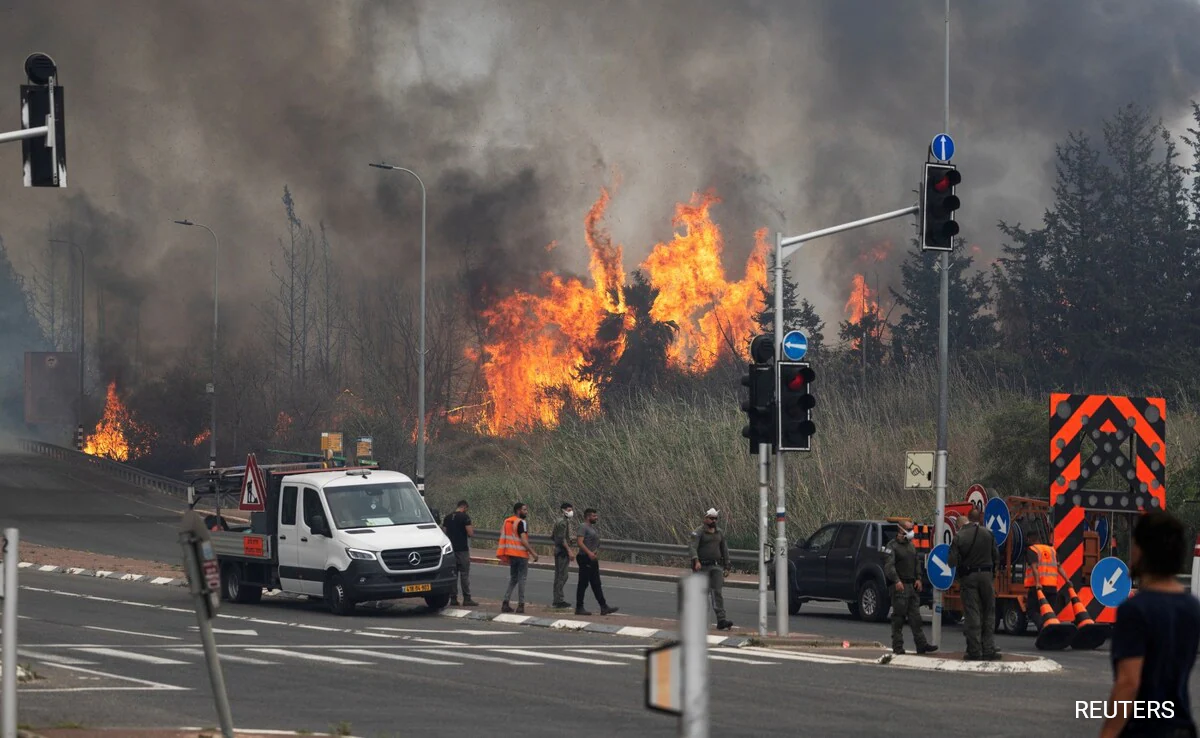Flames of Loss: Israel Grieves as Wildfires Devour Homes and Hope”
Jerusalem, May 1, 2025 — Smoke hangs heavy over the hills of central Israel. What was once a landscape of pine trees, quiet villages, and prayerful mornings is now scorched earth, blackened ruins, and the silence of loss.
In the wake of what officials are calling the most devastating wildfires in Israel’s modern history, families are returning—not to homes, but to ashes. Entire communities west of Jerusalem, including Neve Shalom, Mevo Horon, and Mishmar Ayalon, have been hollowed out by flames. Over 20,000 dunams of land—about 5,000 acres—have been incinerated. More than 3,000 people have been displaced. And with every gust of wind, the embers threaten to awaken again.
“I packed only one thing—my father’s photo,” said Shira Ben-David, standing near the smoking remains of her house in Ta’oz. “We built this home together after he died. It was all I had left of him. Now it’s gone.”
The fires came fast. Fueled by strong winds and a relentless heat wave, flames swept through dry forests and leapt across roads. Fire crews raced against time, battling walls of fire with limited resources. Air tankers dropped water from above, while firefighters on the ground worked with bare hands and blistered feet. Their exhaustion showed, but they didn’t stop.
Hospitals in Jerusalem treated dozens for smoke inhalation, while roads into the city were choked with cars—residents fleeing, volunteers arriving. The IDF was deployed to assist. The sound of sirens became the soundtrack of a nation in crisis.
Even as the flames were slowly brought under control, new fears emerged. Eighteen people have been arrested on suspicion of arson. Investigations are underway. For many, the question isn’t just how this happened—but why.
Prime Minister Benjamin Netanyahu declared a state of emergency and called on international allies. Countries like Italy, Greece, and Cyprus have sent firefighting aircraft in solidarity. “This is not just Israel’s fire,” Netanyahu said. “This is a wound to the soul of our people, and the world is responding with heart.”
The environmental toll is immeasurable. Entire ecosystems have been wiped out. Trees that stood for a century are now carbon dust. Birds, foxes, and deer have vanished from the hills. The Israel Nature and Parks Authority mourns what could take decades to regenerate if ever.
And yet, amidst the ruin, the spirit of resilience flickers.
Synagogues have opened their doors to the displaced. Young volunteers deliver food and blankets. Firefighters, having slept only in shifts, return to the front lines with red eyes and firm resolve.
“Israel has burned before,” said Rabbi Eli Baruch in a tearful address. “But every time, we rise from the ashes. We are a people of the land, and we will plant again.”
As the smoke begins to clear, Israel is left grieving—but not broken. The flames may have taken homes, forests, and memories but they could not consume hope.
